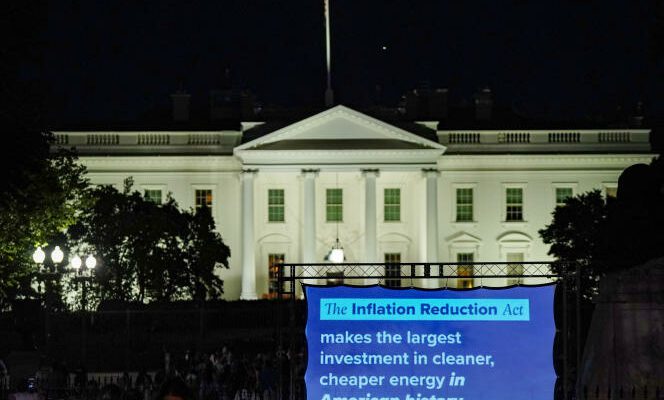Pold on board. The deluge of subsidies poured out by the United States is threatening European industry and its most promising investments. This Tuesday, March 7, the Bloomberg agency revealed that the American electronics company Intel was now asking for an additional 5 billion euros to build its factory in eastern Germany. Berlin had generously granted 6.8 billion to win the decision. But Intel would consider that this is no longer enough given the inflation of costs, in particular raw materials and energy. He could also have added in the face of the prodigality of the American government which largely finances new chip factories on its soil with its law on microprocessors.
It is another text of the same order, but even more generous and devastating which is magnetizing the European industrialists, the law on the reduction of inflation (IRA). This reserves nearly 370 billion dollars (350.8 billion euros) to help set up factories in the field of energy transition.
This Wednesday, March 8, THE FinancialTimes tells us that the leaders of Volkswagen have met the European Commission to calmly explain to them that they were considering postponing their project to invest in batteries in Eastern Europe, to promote development in the United States. They would have calculated that they could recover 9 to 10 billion euros in subsidies, while benefiting from an energy price much more advantageous than in Europe.
Application rules
The sums promised by the European Union within the framework of the various support plans for the energy transition are in theory not so far from those put forward by the Americans, but the members are torn over the distribution of the manna and the methods of application. Northern countries, such as the Netherlands and Sweden, do not want a European IRA. Neither does Germany, but it is questioning itself more and more.
The main difference between the two approaches is that the European one is less protectionist and much more complex. As it cannot be done by a simple tax credit, as for the American mechanism, it is bogged down in an interminable bureaucracy which discourages industrialists, especially the most modest, less legally equipped.
In a post on the LinkedIn network, Thomas Schmall, member of the management board of Volkswagen and head of the components activity (and therefore batteries), confirms the meeting in Brussels with the Commission and pleads for a plan at the level of that of the Chinese and Americans, an accelerated procedure, a very low price of renewable electricity and a real strategy in terms of mining resources. Americans are moving faster and factory location decisions will be made in the coming months, he writes. The issue of batteries will be a life-size test of Europe’s ability to resist the major industrial relocation that threatens it. And it went badly.
